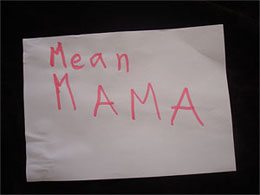You’re supposed to feel
Somebody always has something to say about how you’re supposed to feel. Once I worked for a man with bad hair, and he accused me of being too sensitive. “How much is sensitive enough?” I asked him. A lover once told me I was too mental, “You can’t think through your life, you have to feel it.” Both of these comments came at about the same time. I didn’t know what to make of it; was I too feeling, or not enough?
When I was pregnant – this seems like ages ago – I was informed by others, often complete strangers, how I ought to feel about becoming a mother. There were, apparently, designated emotions of excitement, anticipation, and joy, and the fact that I felt other feelings like dread, fear and suffocation – not on the condoned list – meant I’d crossed a line, putting the sacred institution of motherhood at risk. “Oh but you must be so excited,” people would correct me, denying me my inalienable right to feel miserable.
So I felt it anyway, just more quietly.
This inspired me, once I hatched small beings into the world, to be very mindful of the casual language we end up using around feelings. “Don’t be sad,” we say unconsciously to a small pouting child. What is that about? Telling a child that the rush of sadness that came over you just now is somehow wrong, you shouldn’t feel it? You have to be one of those happy shiny people all the time?
Not that we should overindulge their sadness or anger. But sometimes, doing a little bit of nothing does the trick. Emotions, like waves, follow their course, crashing on to the shore and receding back into the larger body of water. One wave follows the next, and they just keep coming.
Yesterday Short-pants was angry at me. She made this obvious by putting her feelings in writing and slipping the large note loudly under my door. I didn’t try to talk her out of it. “You are really angry,” I said, like I learned in  a book about how to talk with kids. And just like the book promises, if you wait a beat, the whole story pours out about what she wanted and what Buddy-roo wanted and what I did and didn’t do…the whole crisis is illuminated. The anger, once expressed, begins to dissipate, sometimes merely from the fact of not being denied.
a book about how to talk with kids. And just like the book promises, if you wait a beat, the whole story pours out about what she wanted and what Buddy-roo wanted and what I did and didn’t do…the whole crisis is illuminated. The anger, once expressed, begins to dissipate, sometimes merely from the fact of not being denied.
Maybe anger has a half-life, and half of it goes away when you get that it’s just plain okay to feel that way for a little while.
But what about me? What do I do with my pent up I’m-fed-up-with-all-this? How do I get to express my longing? Or my sadness, my fear? Little eyes are always watching. I used to lock myself in the bathroom, just to have a moment alone to process. But little fists learn quickly how to knock incessantly. And besides, why should I shield them from what’s real?
Of course I try to contain the more difficult feelings, but when I can’t keep them in, I simply don’t. I’ve stormed into the girls’ room in a rage, their little faces shocked and their little bodies recoiling from the force of my angry words. I’ve backed up against the wall and let my body slide down it until I’m sitting with my forehead against my knees, heaving tears. About these outbursts I do not apologize; I explain. Later, when the feeling has ebbed, we sit on the stairs and I say something like “Mama was pretty angry, I wish I hadn’t been so loud that I frightened you,” or “Mama was pretty sad, wasn’t I?”
But what if something happens and you don’t feel anything? Like when you’re supposed to feel and you can’t figure out how? Or you’re just, numb? Can they see that too? Which is more damaging to them, I wonder: to witness rage, fear, and sadness or to watch their mother stoically stand at the counter, sponging over the cutting board in a circular motion again and again and again, just to get at the nothing that’s brewing within?